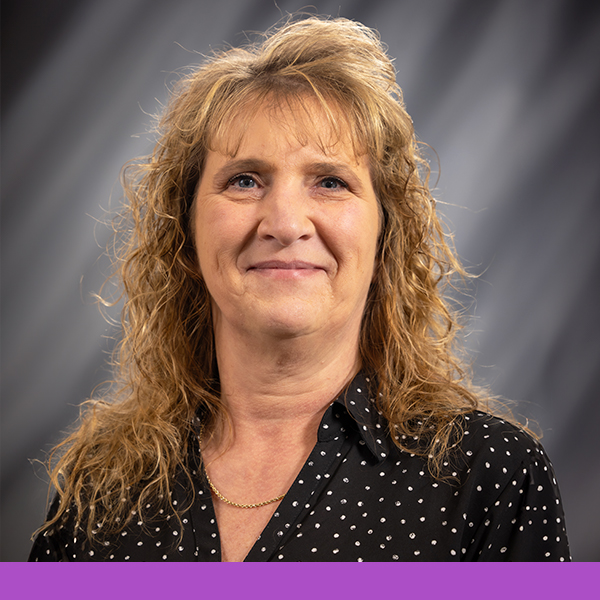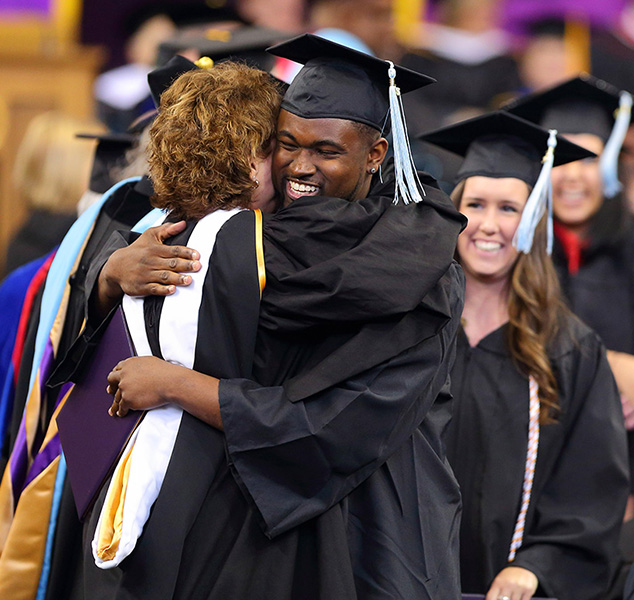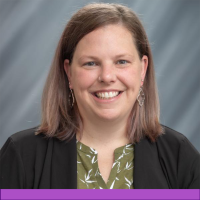Social Work: Foundation (MSW)
Prepares you for advanced generalist practice with individuals, families and groups who have experienced a wide array of traumatic experiences.
This track is designed for students who do not have a social work undergraduate degree from a Council on Social Work Education (CSWE) accredited program.
- Delivered entirely online
- Next cohort Fall 2027
- Application opening September 1, 2026

Features
Entirely Online | 60 Credits | 3.5 Years
- Learn an integrated approach to treating acute and complex forms of psychological trauma, including various cognitive and body-centered psychotherapies and approaches
- Extensive opportunities to practice and refine techniques while under supervision
- The only program in Iowa that has the cutting-edge TIC Concentration speciality
- Dedicated faculty who have strong relations within the human services field
- More than 150 professional partnerships in 40 Iowa communities that provide quality internships
As an Online & Distance Education student, you’ll have a dedicated Enrollment Contact and Program Coordinator to assist you with registering for classes, navigating the course sequence and billing process, preparing for graduation, and much more.
Rebecca Dickinson
Program Coordinator
Assistant Professor,
Social Work
rebecca.dickinson@uni.edu
319-273-7859

Lisa Jaeger
Enrollment Contact
lisa.jaeger@uni.edu
319-273-2504
Request Information
This program incorporates the same high standards and course workload expectations as the on-campus MSW program, but features the convenience of course delivery without the necessity of commuting to campus. Courses are offered online using Blackboard, an online learning management system and Zoom. Most courses will also meet Tuesday and/or Thursday evenings from 6 to 9 p.m. (CST) via interactive video conferencing.
View course sequences:

Our graduates are prepared to:
- Excel in positions in substance abuse agencies, mental health facilities, domestic violence shelters, schools, hospitals and prisons
- Provide cutting-edge trauma-specific therapy to a wide range of client systems
- Take on leadership positions in the field
- Pass the Licensed Master of Social Work (LMSW) exam at a rate higher than the national average

Individualized Support Services
Throughout every step of your program, you'll have a dedicated team of support staff ready to assist you. You'll also have access to UNI services such as:
- Personalized academic advising
- Support from Financial Aid, Career Services and Rod Library staff
- Academic support and tutoring opportunities from the Learning Center
- Access to student accessibility services and staff
- Technical support assistance

This program incorporates the same high standards and course workload expectations as the on-campus MSW program, but features the convenience of course delivery without the necessity of commuting to campus. Courses are offered online using Blackboard, an online learning management system and Zoom. Most courses will also meet Tuesday and/or Thursday evenings from 6 to 9 p.m. (CST) via interactive video conferencing.
View course sequences:

Our graduates are prepared to:
- Excel in positions in substance abuse agencies, mental health facilities, domestic violence shelters, schools, hospitals and prisons
- Provide cutting-edge trauma-specific therapy to a wide range of client systems
- Take on leadership positions in the field
- Pass the Licensed Master of Social Work (LMSW) exam at a rate higher than the national average

Individualized Support Services
Throughout every step of your program, you'll have a dedicated team of support staff ready to assist you. You'll also have access to UNI services such as:
- Personalized academic advising
- Support from Financial Aid, Career Services and Rod Library staff
- Academic support and tutoring opportunities from the Learning Center
- Access to student accessibility services and staff
- Technical support assistance

To be admitted, students must have:
- Resume
- An applicant statement
- Two professional references — one from a college-level instructor addressing their ability to succeed in graduate-level academic work, and one professional reference
- 3.0 minimum GPA. Applicants with an undergraduate GPA of lower than 3.0 may still apply and will be required to submit a GPA Appeal Statement as part of their application.
- Along with the application, students should have their official transcripts sent directly to the Office of Admissions.
Program Details
- What is Social Work?
At the most basic level, social work involves helping people address struggles in their lives. Social work is a vast field, which means there are numerous opportunities based on your interests or passions. Some people enter social work already drawn to a specific population or issue, whereas others develop an interest through their coursework and field experiences. Social workers can help with difficulties, transitions or struggles from birth to death and at any point in between. Some areas of social work practice include (but are not limited to):
- Aging Services/Gerontological SW
- Children and Families
- Child Welfare
- Criminal Justice System (i.e. probation, parole, corrections, public safety, juvenile justice)
- Crisis Intervention
- Disability Advocacy & Support Services
- Domestic Violence
- Education (early childhood, K-12 schools, colleges, and universities)
- Employment/Vocational Services
- Housing Access & Services
- Human Rights
- LGBTQ+ Services
- Lobbying & Policy Advocacy
- Medical SW (including hospitals, clinics, midwifery services, etc.)
- Mental Health Treatment
- Military/Veteran Services
- Non-profit Management and Administration
- Program Evaluation
- SW Research
- Substance Use and Addictions Treatment
- Victim Support Services
Not only are social workers employed in a variety of settings, but they work at different levels of practice, including:
- Micro level (direct practice): Micro level practice involves direct interaction with clients to cope and address their problems. This is the most common type of social work practice and is offered in a variety of settings.
- Mezzo level: Mezzo level social work involves working with groups, which runs the scale from working with family units, groups, organizations, and communities. Social workers frequently work across both the micro and mezzo levels within the same job.
- Macro level: Macro level social work is larger scale, and involves interventions, policy work, and advocacy at larger scale levels, including communities, states, and countries. Macro social work can include activities such as grant-writing, activism, and crafting policies or laws.
- What is Trauma-Informed Care?
Trauma-Informed Care is an approach that recognizes the pervasiveness of trauma in the general population and views it as a driving force behind many psychological conditions, physical health ailments, behavioral disorders, public health issues, and systemic racism/oppression. Based on this understanding, the aim of TIC is to reduce the effects of stress, adversity, and trauma in individuals (both clients and providers), families, organizations, and broader systems of practice. It does this by integrating knowledge about trauma into all aspects of services and trains providers to recognize the signs and symptoms of trauma to help minimize the potential for harm and re-traumatization.
Examples of TIC approaches include (but are not limited to):- Changing organizational policies, procedures and practices to minimize potential barriers to service
- Teaching staff and clients de-escalation protocols, stabilization skills, and stress reduction techniques
- Conducting screening and assessment that identify exposure to trauma and adversity
- Providing trauma-specific interventions to effectively resolve the negative impact of trauma.
UNI offers one of the few trauma-informed care specialization MSW programs in the Midwest, and the only one in the state of Iowa.
- What Does an MSW Offer You?
A Master’s Degree in Social Work (MSW) is an extremely versatile degree option. An MSW offers a much broader range of job options in addition to providing therapy services. Because of that, MSWs tend to receive a higher salary compared to people in the field with an undergraduate degree.
Some people choose to get an MSW in order to be able to practice as a mental health therapist, or what is known as clinical social work. Similar disciplines (e.g. mental health counseling, marriage and family therapy, and psychology) also offer graduate programs that allow the practitioner to provide mental health therapy services. Disciplines differ in their perspective of what causes the problems that people face and how to address those issues. Practicing as a mental health therapist requires licensure by the Iowa Board of Social Workers. An MSW from UNI allows our graduates to sit for the licensure exam to become a Licensed Master's level Social Worker (LMSW).
There are also a wide variety of non-therapy jobs for MSWs. Non-clinical opportunities for MSWs include (but are not limited to) advocacy, program development and management, agency and non-profit administration, and policy makers. UNI'S MSW program is considered a "generalist" program, meaning that it provides a rounded education to prepare our MSWs for a broad range of jobs.
- Our Mission
The mission of the University of Northern Iowa Masters of Social Work Program is to provide students with a trauma-informed foundation that prepares them to identify, evaluate, and address the personal, social, and systemic conditions that perpetuate individual, family, organizational and community-based trauma using evidence-informed interventions. Our curriculum is based on the perspective that effective change within this paradigm requires upholding the dignity and worth of the individual, advocating for human rights and social and economic justice, challenging oppression, promoting human relationships, practicing multi-cultural responsiveness, and identifying factors that mitigate the effects of trauma and enhance strengths, competencies, and resilience. Students obtain an in-depth understanding of these values and practices through in-person and online coursework and instruction that promotes critical thinking, self-reflection, and ethical decision making, along with intensive experiential learning through local, state, national, and international field placements.
What does that mean for our students?
Our curriculum is based on the perspective that social workers are change-makers. Social workers follow a professional code of ethics from the National Association of Social Workers. Ethically, we believe it is our responsibility as social workers to:
- Treat every person with dignity and worth
- Advocate for human rights, along with social and economic justice
- Challenge oppression, in all its forms
- Promote human relationships
- Recognize and address our own biases
- Practice multi-cultural responsiveness
- Address factors to reduce the effects of trauma
- Recognize the strengths and assets in our clients
- Help clients build resilience
Our curriculum is based on these ethical principles. Through our courses, we want students to develop skills in:
- Critical thinking
- Self-reflection
- Ethical decision-making
- Practicum requirements
Students will also complete a practicum/internship. Our agency partners request that you are available on weekdays between the hours of 8 a.m. and 5 p.m. You will need to complete approximately 12-13 hours per week over two semesters. If you are already employed in the human service field, it may be possible to complete your internship at your current place of employment if your internship duties and supervisor are different than your employment duties and supervisor.
- Licensing and accreditation
The Master of Social Work programs are accredited by the Council on Social Work Education (CSWE). Accreditation verifies that the MSW degree meets the high standards considered essential to providing a high quality social work education, and ensures that every student graduating from a social work program in the U.S. possesses the same requisite skills and knowledge.
The MSW programs satisfy the licensure requirements in Iowa. Requirements may vary by state. For licensing requirements specific to your state, visit ASWB. For further information about whether or not this program meets the licensing requirements in your state, please contact your state board (a list of state agencies can be found at https://www.aswb.org/licenses/how-to-get-a-license/getting-licensed-in-…).
Licensing exam information can be found at www.aswb.org/.
- Program cost
Program cost All students pay the same tuition rate, regardless of location, making it an affordable option for all students. Based on the 2025-2026 tuition rates and program sequence, the full cost of the Social Work: Foundation MSW program is estimated as follows:
*** Fall 2025 - Spring 2026 Tuition and Fees per Board of Regents, State of Iowa Approval ***
Term Credits Tuition* Technology Fee* Total* Spring 2025* 6 $3,516 $92 $3,608 Summer 2025* 6 $3,516 $92 $3,608 Fall 2025 6 $3,516 $138 $3,654 Spring 2026 8 $4,688 $138 $4,826 Summer 2026 6 $3,516 $92 $3,608 Fall 2026 6 $3,516 $92 $3,608 Spring 2027 6 $3,516 $92 $3,608 Summer 2027 6 $3,516 $92 $3,608 Fall 2027 5 $2,930 $92 $3,022 Spring 2028 5 $2,930 $92 $3,022 Graduate Publication fee Charged once during the first term $50 Records & Documents fee Charged once at graduation $115 Total estimated program cost $36,337 *Spring 2025-Summer 2025 costs reflect the 2024-2025 Tuition & Fees.
***Tuition and fees may be adjusted by the Iowa Board of Regents and are typically announced in the spring with increases occurring in the fall. More information can be found at tuition.uni.edu.
In addition to tuition and fees, students should also budget for indirect costs such as books, supplies, and personal expenses. View more information about the direct and indirect costs here.
Next Steps
Express interest
Complete our online information request form. We'll send program updates, important information and application deadlines directly to your inbox!
Learn more
Learn more about the Department of Social Work in our College of Social and Behavioral Sciences.
Contact us
Our team of support staff is available to help you throughout your UNI journey.
If you have any questions, contact us at 319-273-7206 or online@uni.edu for assistance!
Delivery of this program is contingent on a sufficient number of students being accepted into the program.

